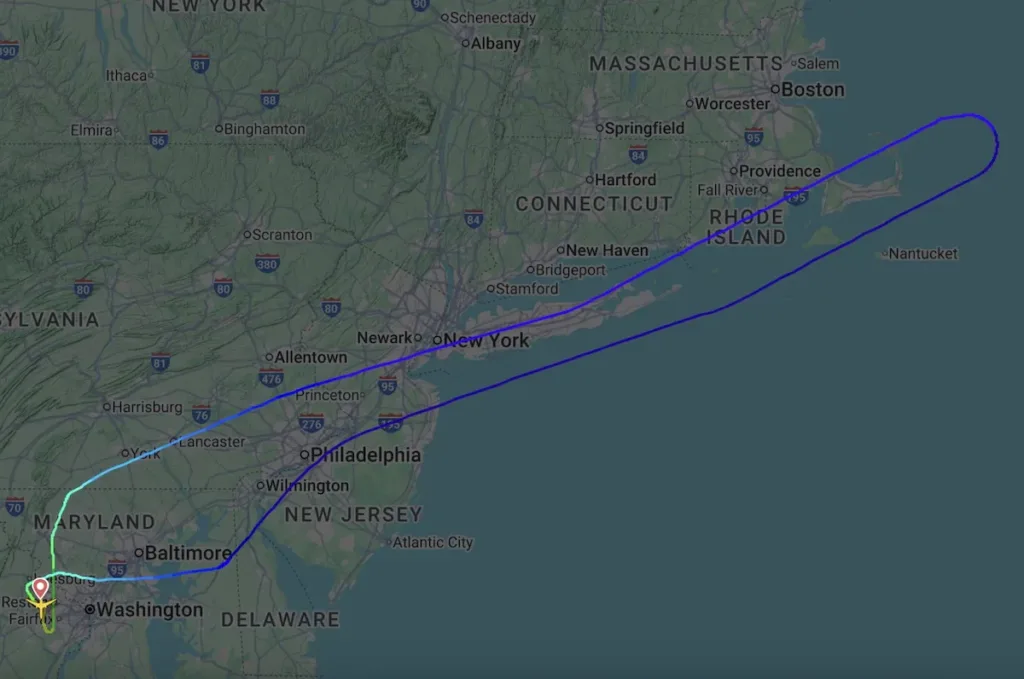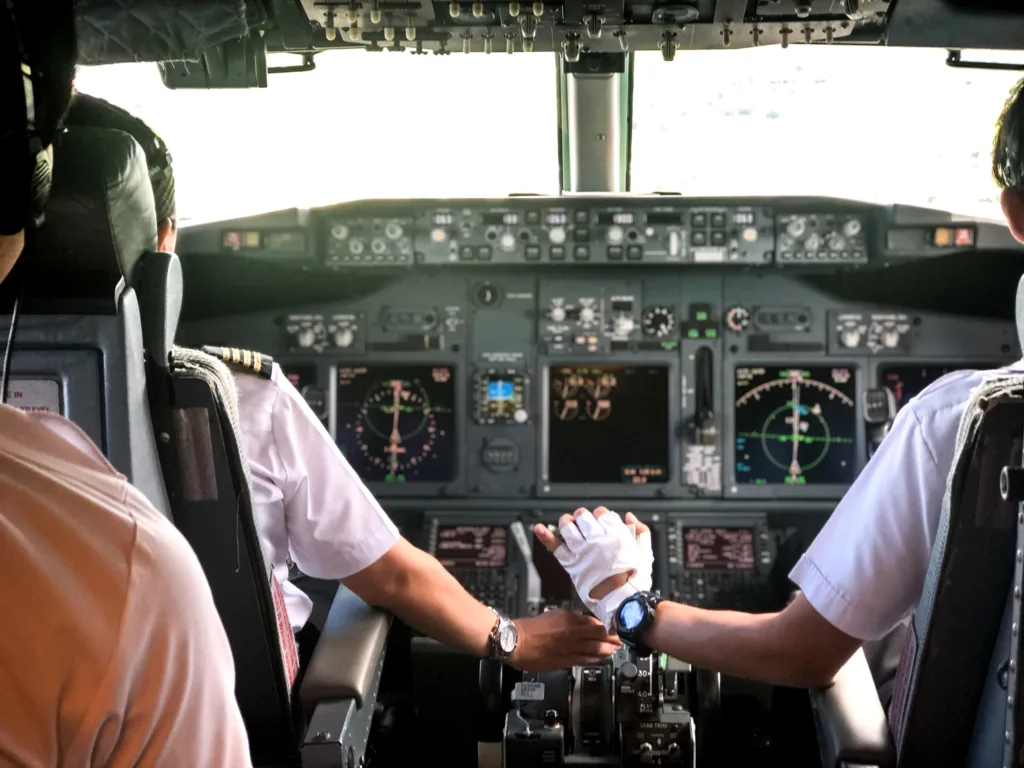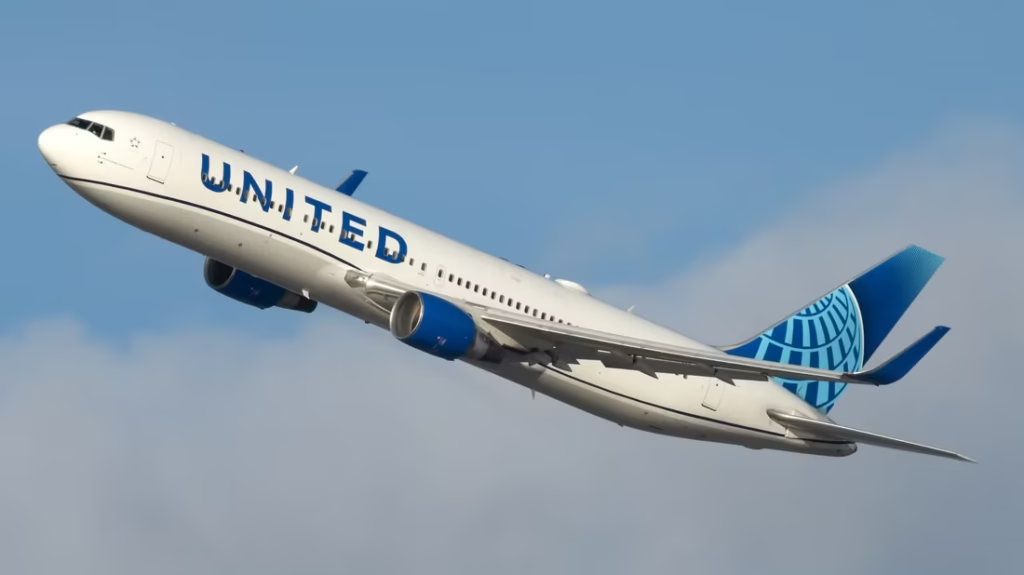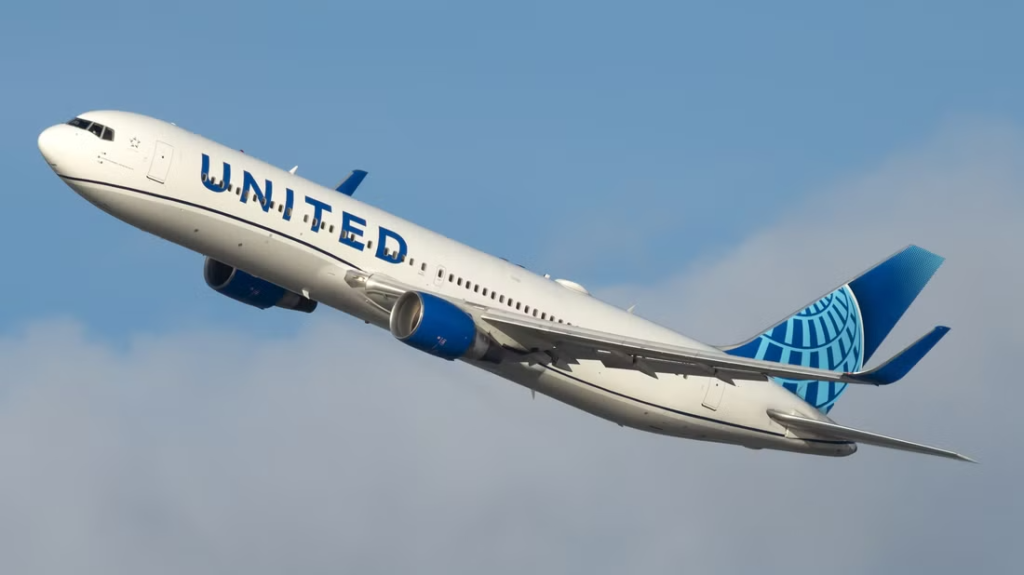United Airlines flight UA126 from Washington to Rome diverted after a passenger’s laptop fell into an inaccessible cargo-hold area. The crew returned to Washington out of lithium-battery safety concerns less than an hour after departure on October 15, 2025.
The Boeing flight 767‑400ER with registration N76054 was operating flight UA126 from Washington Dulles (IAD) bound for Rome Fiumicino (FCO). Less than an hour into the climb, about 100 miles southeast of Boston, the crew reported that a passenger’s powered-on laptop had fallen “down the sidewall” of the cabin and into the aircraft’s lower deck cargo hold, into an area not protected by the fire suppression system.
Following this, the crew decided to return back to IAD rather than continue over the Atlantic with an inaccessible device containing a lithium-ion battery.
The crew emphasised that no emergency was declared, but they described the situation as a “minor situation” handled with “an abundance of caution.” The aircraft touched down safely back at Washington at 00:35 local time.

United Boeing 767 Diversion: Sequence of Events
Flight UA126 departed from IAD at approximately 22:22 local time for the eight-hour transatlantic service to FCO. Shortly after take-off the Boeing 767 climbed to 31,000 ft but did not proceed uninterrupted. The crew contacted Boston Centre to request a return to Washington after discovering the laptop had slipped through a side wall of the passenger cabin and into a cargo‐pit area where it could not be retrieved. They noted the device was outside of the fire suppression zone and remained turned on, which elevated the perceived risk.
Rather than continuing the flight, the decision to divert was taken and vectors were obtained for Washington Dulles. The voice recording shows the pilot stating: “We have a minor situation… a passenger had a laptop that fell into a cargo pit area of the airplane… we don’t know the status of it… we can’t access it.”
Eventually, the plane landed safely back at IAD around 00:35 local time, approximately two hours and thirteen minutes after departure. Once on the ground the laptop was retrieved, the aircraft was serviced and refuelled, and the flight departed again at 03:24, arriving at its destination in Rome at roughly 17:26 local.

Safety Implications & Industry Context
The laptop in question contained a lithium-ion battery, a known hazard on aircraft when devices are damaged, short-circuit, or get into inaccessible areas. Because it had ended up in a part of the aircraft not covered by existing fire suppression systems, the crew’s decision aligns with aviation safety protocols.
Experts emphasise that when a powered device goes into an unmonitored space, the risk, even if small cannot be properly managed in flight. The aviation industry has long been wary of lithium battery incidents. This event is unusual only for how the item slipped into the cargo hold.
From an operational perspective, the diversion incurred high costs: extra fuel, crew hours, schedule disruption and passenger delay. A Boston Center controller reportedly told the crew: “That’s a new debrief story. I’ve never heard anything like that before.”
Why Diversion was Prioritised?
United Airlines prioritised safety over schedule in its decision-making. That choice was driven by several factors. First, the device was still powered on, meaning residual battery energy remained. Second, the laptop was located in a lower deck area outside the fire-suppression coverage zone, meaning if a thermal event occurred, crew response would be severely constrained.
Third, the flight was on a long-haul route where any in-flight fire could pose serious risk with few nearby diversion airports. In this context, returning to base was the prudent move.
By avoiding the Atlantic crossing while the risk remained unmitigated, United reduced exposure to worst-case scenarios. Although the probability of a battery event was very low, the consequences would be severe, and diversions are difficult, but ultimately far less costly than in-air emergencies.

Implications for Passengers
Passengers onboard UA126 experienced delay and inconvenience, but no safety incident. The flight reached Rome safely later that same day after recovery of the laptop and aircraft servicing. For travellers, the episode serves as a reminder: electronics matter in aviation, and where they end up matters more.
Airlines may react to device misplacement swiftly, even when the issue sounds innocuous. In practice, passengers are advised to store laptops securely and avoid placing them in seat sidewalls or other unstable positions.
United Boeing 767 Diversion – Bottom Line
A dropped laptop prompted a United Boeing 767-400ER on a transatlantic flight to divert back to Washington Dulles. The fact that it fell into an area without fire-suppression coverage and remained powered elevated the risk assessment.
Please join our Telegram Channel for the latest aviation updates.
Source: OMATT

